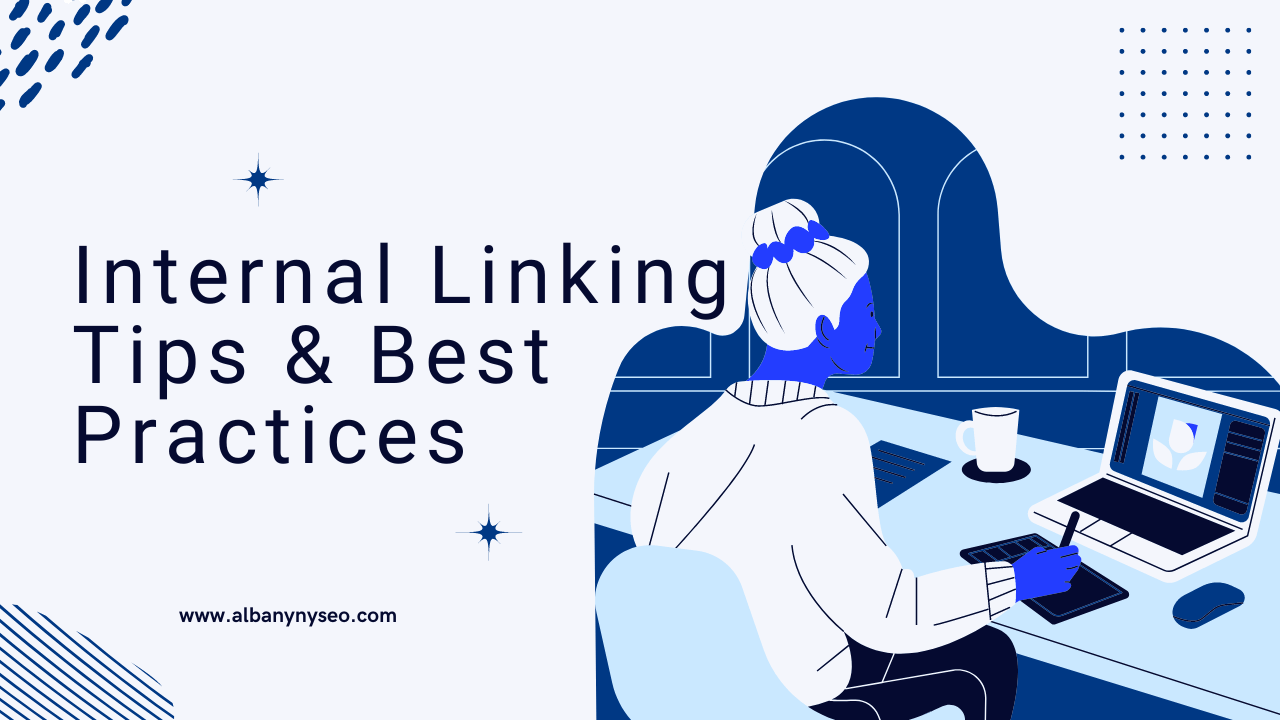In the vast digital landscape, your website is your virtual storefront. Just like a physical store, it requires regular maintenance and optimization to ensure it attracts visitors, serves its purpose, and ultimately succeeds. One essential aspect of maintaining a healthy and successful website is Search Engine Optimization (SEO).
If you’re a business owner or a webmaster in Albany, New York, you’re in the right place. This article is your comprehensive guide to understanding and conducting an SEO audit for your Albany website. We’ll walk you through the steps, offering insights and tips along the way. So, grab a cup of coffee, settle in, and let’s dive into the world of SEO Albany audits.
What Is an SEO Audit?
Before we delve into our SEO audit checklist, let’s clarify what an SEO audit actually is.
“An SEO audit is like a health checkup for your website. It’s a systematic review of your site’s performance, structure, and content to identify areas that need improvement.”
The goal? To enhance your website’s visibility on search engines like Google, ultimately driving more organic (unpaid) traffic to your site.
Think of it this way: Google is the doctor, and your website is the patient. The SEO audit is the diagnosis, and the optimization actions are the treatment plan. When done right, it can lead to a healthier website that ranks higher in search results and attracts more visitors.
Now, let’s get into the nitty-gritty of conducting an SEO audit for your Albany website.
Setting the Stage: Preparing for Your SEO Audit
1. Define Your Goals
Before diving into the audit, ask yourself: What do you want to achieve with your website? Are you looking to increase sales, generate leads, or simply provide information? Knowing your goals will help tailor your audit and subsequent optimization efforts accordingly.
2. Identify Your Target Audience
Understanding your audience is crucial. Who are they? What are their interests and needs? Knowing your target audience will guide your content creation and Albany SEO strategy.
3. Analyze Your Competitors
Take a look at your competitors’ websites. What are they doing well? Where do they fall short? This analysis can provide valuable insights into what you should and shouldn’t do.
4. Collect Data
Gather data about your website’s current performance. You can use tools like Google Analytics, Google Search Console, and SEO audit tools like Moz or SEMrush to collect data on your website’s traffic, keywords, and more.
The Albany SEO Audit Checklist
1. Keyword Research and Analysis
Keywords are the foundation of SEO. Start by identifying relevant keywords for your Albany-based website. Use tools like Google Keyword Planner or Ubersuggest to discover keywords with good search volume and relevance to your content.
Action Points:
- Create a list of target keywords related to your business and location (e.g., “Albany dentist” or “Albany pizza delivery”).
- Analyze the search volume and competition for these keywords.
2. On-Page SEO
On-page SEO focuses on optimizing individual pages of your website for search engines. Here are some critical on-page elements to assess:
a. Title Tags
The title tag is what appears as the clickable link in search results. It should be concise, and descriptive, and include your target keywords.
b. Meta Descriptions
Meta descriptions provide a brief summary of your page’s content. Make sure they are engaging and include relevant keywords.
c. Header Tags (H1, H2, H3, etc.)
Use header tags to structure your content. The H1 tag should contain your main keyword, while H2 and H3 tags can be used for subheadings.
d. URL Structure
Ensure your URLs are user-friendly and include keywords where applicable.
e. Content Quality
Review your content for quality and relevance. Is it informative and engaging? Does it provide value to your audience?
Action Points:
- Check and optimize title tags and meta descriptions.
- Review header tags and URL structure.
- Assess the quality and relevance of your content.
3. Technical SEO
Technical SEO deals with the backend aspects of your website that impact search engine visibility. It’s essential to ensure your website is technically sound.
a. Site Speed
A slow website can negatively impact user experience and SEO rankings. Use tools like Google PageSpeed Insights to analyze your site’s speed and make improvements if necessary.
b. Mobile-Friendliness
With the rise of mobile users, having a mobile-friendly website is crucial. Google prioritizes mobile-friendly sites in its rankings.
c. Indexing and Crawling
Check if your website is properly indexed by search engines. Use robots.txt and XML sitemaps to guide search engine crawlers.
d. Broken Links
Identify and fix any broken links on your website. Broken links can harm user experience and SEO.
e. HTTPS Security
Ensure your website is secure with HTTPS. Google gives preference to secure websites in its rankings.
Action Points:
- Test and improve site speed.
- Verify mobile-friendliness.
- Check indexing and crawling status.
- Fix broken links.
- Implement HTTPS security.
4. Local SEO
If your business serves Albany and the surrounding area, local SEO is essential. It helps you appear in local search results when people search for products or services near them.
a. Google My Business (GMB) Optimization
Claim and optimize your Google My Business listing. Ensure all information, including your address, phone number, and business hours, is accurate.
b. Local Citations
Ensure your business information is consistent across various online directories and websites. Inconsistencies can confuse search engines.
c. Reviews and Ratings
Encourage customers to leave reviews on platforms like Google and Yelp. Positive reviews can improve your local search rankings.
Action Points:
- Optimize your Google My Business listing.
- Maintain consistent business information across directories.
- Encourage and manage customer reviews.
5. Content Audit
Regularly updating and improving your website’s content is vital for SEO. Assess your existing content and plan for new additions.
a. Content Relevance
Ensure your content aligns with your target keywords and audience. Remove outdated or irrelevant content.
b. Keyword Integration
Integrate your target keywords naturally within your content, headings, and meta tags.
c. Fresh Content
Publish fresh content regularly, such as blog posts or news articles. Google values websites that provide up-to-date information.
Action Points:
- Review and update existing content for relevance.
- Integrate keywords naturally into your content.
- Develop a content calendar for regular updates.
Measuring Success: Tracking and Analytics
6. Install Analytics Tools
If you haven’t already, install Google Analytics and Google Search Console. These tools provide valuable insights into your website’s performance.
7. Monitor and Adjust
SEO is an ongoing process. Regularly monitor your website’s performance using the data from your analytics tools. Adjust your strategy based on what’s working and what’s not.
Final Thoughts
Congratulations! You’ve completed your SEO Albany audit checklist for your Albany website. Remember that SEO is an ongoing effort. Keep refining and improving your website’s health, and you’ll see the benefits in terms of increased visibility, traffic, and business success.
It’s important to note that SEO is a complex field, and this checklist is just the tip of the iceberg. If you find yourself overwhelmed or if you’re looking for more advanced SEO strategies, consider consulting with an SEO expert or agency.
In the end, a healthy website is an asset to your business, and investing in SEO is a smart move to ensure your Albany-based website thrives in the digital age. So, go ahead and implement these steps, and watch your website’s health—and your business—flourish in the online world.
Remember, Rome wasn’t built in a day, and neither is SEO success. Take it one step at a time, stay committed, and you’ll reap the rewards of a well-optimized website. Happy auditing!







